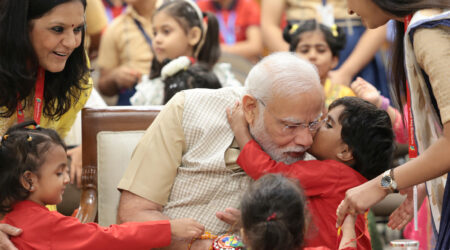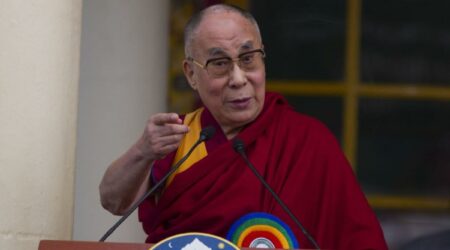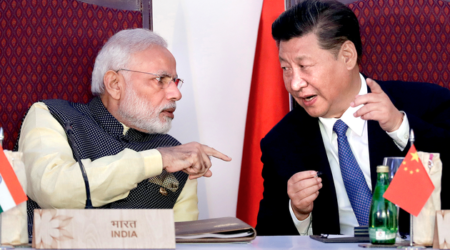By Arvind Vora
Anuvrat means a small vow – anu means the smallest and vrat means a vow. In the Jain code of conduct, one finds 12 vows prescribed for lay persons of which five are Anuvrat.
The five Anuvrat described in detail in the 7th chapter of the Tattvartha Sutra and prescribed for lay persons are:
1. Ahimsa – nonviolence, which means refraining from causing injury to any living being with at least one sense faculty
2. Satya – truth, refraining from false statements
3. Asteya – theft, refraining from theft or claiming physical things or even written articles not of yours
4. Brahmacharya – celibacy, refraining from illicit sexual activities
5. Aparigraha – refraining from accumulating possessions more than needed.
The remaining seven vows are meant to strengthen Anuvrats and to inculcate spiritual discipline. The vows for ascetics are similar but more demanding in its observance and practices.
The United Nations represents a hope for humanity to coexist in peace and absence of violence. On January 1, 1942 while World War II was going on, 26 allied nations signed the “Declaration by United Nations”. India though not yet an independent nation was represented by Shri Girija Shankar Bajpai and signed as Agent General (envoy) of the Government of India. The term ‘United Nations’ was suggested by the then US president Franklin D. Roosevelt.
At the conclusion of the San Francisco Conference on June 26, 1945), Shri A. Ramaswami Mudaliar signed the UN Charter on behalf of the Indian States and Shri V.T. Krishnamachari signed it on behalf of the Princely States of India at the Veterans’ War Memorial Building in San Francisco.

Anuvrat movement and, in a small way the Anuvibha organization has reached out to the world community in many arenas to promote the ideals of United Nations’ SDGs and thereby foundational principles of Jainism.
The UN has promulgated 49 declarations of International Decades, starting with 1960 to 1970 as a Decade of Development to the 2022–2032 as International Decade of Indigenous Languages. In September 2015, 193 countries came together at the United Nations to adopt and commit to a long-term, comprehensive strategy to tackle the world’s greatest challenges related to global sustainable development. The result was the SDGs (Sustainable Development Goals), a list of 17 goals to achieve a better and more sustainable future for all by 2030. These 17 goals are shown in the UN provided goals via symbols.
It is interesting to note that if most of these goals of SDG or part of International Decades are not achieved, one can see either one of the Anuvrat is not followed, particularly the first one, Ahimsa. In fact, the entire structure of the UN is based on achieving and promoting Ahimsa. One may say that the world is still full of violence and the UN has not fulfilled its mandates, but one must also agree that no world war has broken out, nor atomic weapons used. In fact, people all over the world are in much better shape in many respects since the founding of the UN more than 75 years ago. Yes, more challenges are ahead and more needs to be done.
In a small practical way, the ANUVIBHA organization has joined the UN NGO (now Civil Society) to reach out to the world community in many arenas. 10 biennial conferences called International Conference on Peace and Nonviolent Action (ICPNA) have been held in India under the leadership of Shri S.L. Gandhi where a sizable number of scholars and peace activists from various countries have participated. Three adult and two youth representatives in the USA have contributed a lot over the last two decades by participation in workshops, conferences held at the UN and other parts of the world to promote peace, which is a byproduct of ahimsa.
March 1st will be celebrated all over India as the founding of Anuvrat under the leadership of Anuvibha. The goal is amazingly simple: every person should take a daily small vow, like refrain from eating fried food or doing one hour of volunteer work, etc. The beauty of it is that it becomes a habit like one does daily brushing of teeth. Let us all take a small vow to reach out to one person a day or a week or a month or a year to explain the Anuvrat movement and make him/her part of the movement to promote ideals of UN SDGs and thereby foundational principles of Jainism.
![]()

Arvind Vora is a main representative of Anuvibha at the UN and has been based in New York since 1969.












